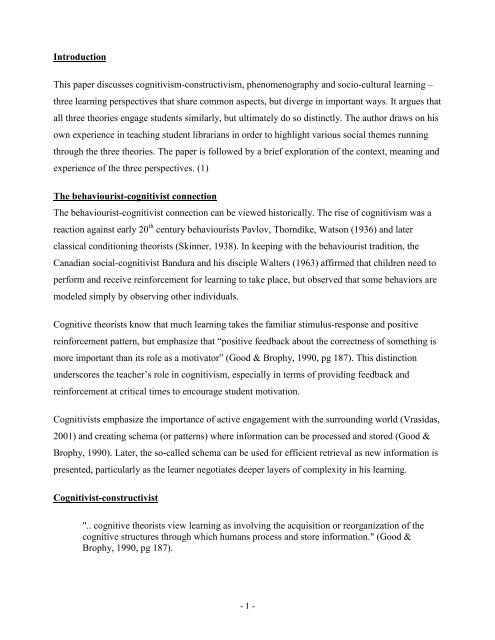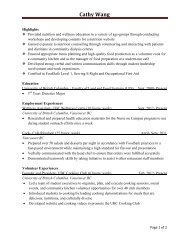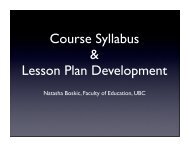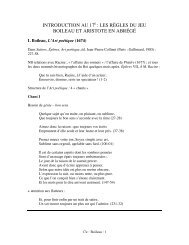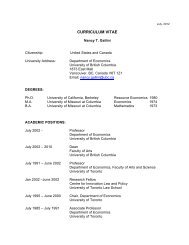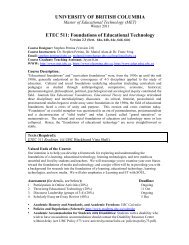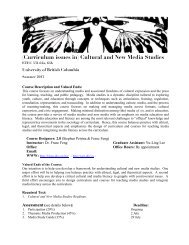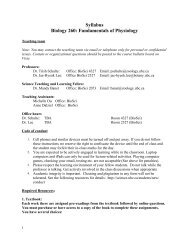adult learning theories - UBC Blogs - University of British Columbia
adult learning theories - UBC Blogs - University of British Columbia
adult learning theories - UBC Blogs - University of British Columbia
- No tags were found...
Create successful ePaper yourself
Turn your PDF publications into a flip-book with our unique Google optimized e-Paper software.
IntroductionThis paper discusses cognitivism-constructivism, phenomenography and socio-cultural <strong>learning</strong> –three <strong>learning</strong> perspectives that share common aspects, but diverge in important ways. It argues thatall three <strong>theories</strong> engage students similarly, but ultimately do so distinctly. The author draws on hisown experience in teaching student librarians in order to highlight various social themes runningthrough the three <strong>theories</strong>. The paper is followed by a brief exploration <strong>of</strong> the context, meaning andexperience <strong>of</strong> the three perspectives. (1)The behaviourist-cognitivist connectionThe behaviourist-cognitivist connection can be viewed historically. The rise <strong>of</strong> cognitivism was areaction against early 20 th century behaviourists Pavlov, Thorndike, Watson (1936) and laterclassical conditioning theorists (Skinner, 1938). In keeping with the behaviourist tradition, theCanadian social-cognitivist Bandura and his disciple Walters (1963) affirmed that children need toperform and receive reinforcement for <strong>learning</strong> to take place, but observed that some behaviors aremodeled simply by observing other individuals.Cognitive theorists know that much <strong>learning</strong> takes the familiar stimulus-response and positivereinforcement pattern, but emphasize that “positive feedback about the correctness <strong>of</strong> something ismore important than its role as a motivator” (Good & Brophy, 1990, pg 187). This distinctionunderscores the teacher’s role in cognitivism, especially in terms <strong>of</strong> providing feedback andreinforcement at critical times to encourage student motivation.Cognitivists emphasize the importance <strong>of</strong> active engagement with the surrounding world (Vrasidas,2001) and creating schema (or patterns) where information can be processed and stored (Good &Brophy, 1990). Later, the so-called schema can be used for efficient retrieval as new information ispresented, particularly as the learner negotiates deeper layers <strong>of</strong> complexity in his <strong>learning</strong>.Cognitivist-constructivist".. cognitive theorists view <strong>learning</strong> as involving the acquisition or reorganization <strong>of</strong> thecognitive structures through which humans process and store information." (Good &Brophy, 1990, pg 187).- 1 -


